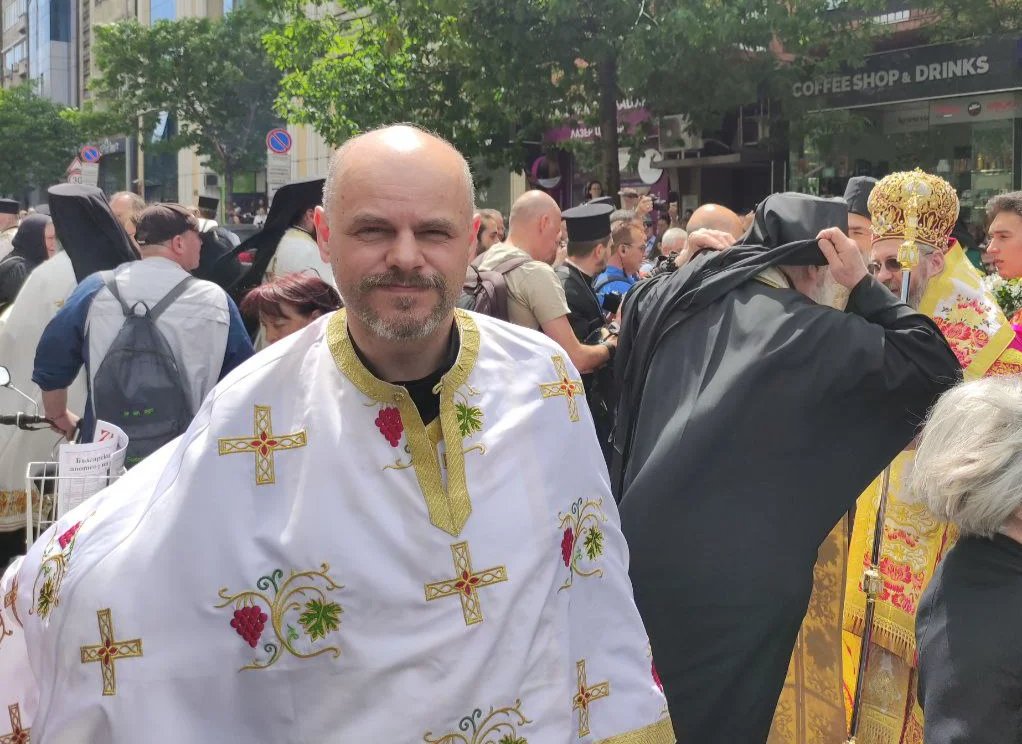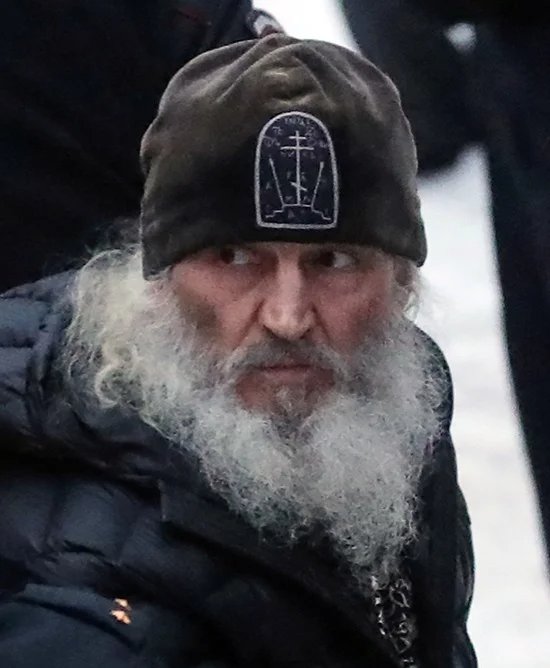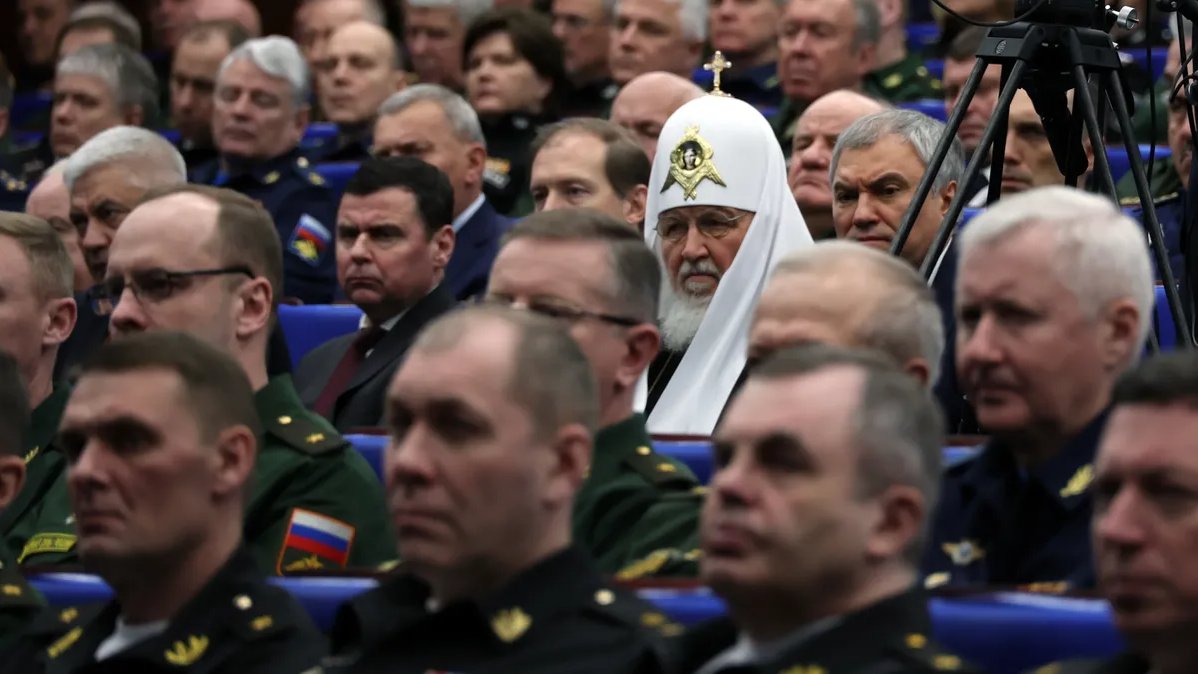“The very pacifism that priest Burdin is trying to use to shield himself against the accusations is not compatible with the current doctrine of the Orthodox Church… The actions committed by him can be soon treated as criminal offences.”
This clear-cut warning can be found in a dossier of priest Ioann Burdin who was banned from ministry and whose actions will now be subject to review by the diocesan court of the Russian Orthodox Church’s Kostroma Diocese.
“In Imperial Russia, prosecution of a priest by a [civilian] court was preceded by removal or ban from ministry,” the dossier continues.
In early March 2022, Father Ioann, 49, a churchwarden in the village of Karabanovo near Kostroma, became the first Russian clergyman to be fined for “discrediting the Russian army”.
Members of his congregation notified the authorities that the priest had given a peaceful service, criticising the developments in Ukraine as a violation of the “Thou shalt not kill” commandment.
Being unable to officially edit the Lord’s word to its liking, the Russian Orthodox Church is, nonetheless, intent on castigating people for a “pacifist” and “too literal” understanding of it.
In the context of the special military operation, as the Kremlin refers to the Ukraine war, the Russian Orthodox Church sees the “Thou shalt not kill” commandment as a call to eliminate as many “enemies” (or Ukrainians, including Orthodox ones) as possible.

Priest Ioann Burdin. Photo: Telegram
Patriarch Kirill, Russia’s spiritual leader, constantly talks about it in his pontifications. To strengthen his usual jingoistic and anti-Western rhetoric further, he recently added a new angle to his speeches: Vladimir Putin’s unquestionable Orthodoxy and his infallibility in geopolitical issues. Kirill’s TV-dependent audience simply absorbs these ideas in full confidence that he is correct, no one is surprised or protesting against it.
- To illustrate, let’s take a look at the patriarch’s recent sermon in the Trinity Lavra of St. Sergius, the spiritual centre of the Russian Orthodox Church, on 3 June. In the speech, Kirill was lauding Putin’s purity of faith and piety by citing the Russian president’s decision to grant Andrey Rublev’s The Trinity, the most famous Russian icon in the world, to the church from the State Tretyakov Gallery collection where it is currently stored.
- This theme gained further traction during Patriarch Kirill’s visit to the Tobolsk-Tyumen Diocese on 10-11 June. The spiritual leader spoke at Tobolsk’s Ascension Church to accuse the West of “rejecting God” and counterpose the rotting part of humanity to “Russia and Russian President Vladimir Putin, an Orthodox Christian man”, concluding: “Many are plotting to bring down the holy Russia”. In his speech, Kirill noted that “patriotic” political beliefs are a precondition to attending Russian Orthodox Church sermons: “A person who goes to church cannot be an enemy of Russia, and even more — they cannot be neutral on this crucial topic as protection of the Russian state” (just to remind our readers: the Russian Orthodox Church charter puts all Orthodox Christians living in Ukraine, Estonia, Lithuania, Latvia, Japan under its canonical jurisdiction).
- Finally, while in Tyumen, Kirill proclaimed that the truth is on Russia’s side, once again calling to pray “for Russia and its Commander-in-Chief Vladimir Putin, an Orthodox man who bravely assumed responsibility for everything that is happening to all of us today”. The patriarch concluded his speech by saying that Russia now needs to be defended “against all those inside and outside it who reject everything that I now said”.
Father Ioann Burdin is one of those who reject these sermons. His Telegram channel evokes the question that Saint Peter and Saint John the Apostles posed to the Jewish Sanhedrin that banned them from preaching about Jesus Christ: “Whether it be right in the sight of God to hearken unto you more than unto God, judge ye” (Acts 4:19).
Ioann is much more willing to direct this question at his “holy bosses” rather than the laymen who took up arms in the very first days of the war and much more readily than the staunchest critics of the Russian Orthodox Church could have imagined. It is impossible to explain this fatal unanimity of Russia’s largest religious organisation. Father Ioann offers a theory that falls in line with Christian mysticism: it is a demonic possession, with its clearest example being the sacralisation of an obvious sin — when executions of civilians, “plunder, and seizure of foreign territories are declared a holy war”.
“We, the Christians, have no right to stand back when a brother is killing a brother, a Christian is killing a fellow Christian,” he writes.
“We cannot shamefully cover our eyes, say that black is white and evil is goodness, claim that Abel was possibly wrong for provoking his elder brother.”
Having doubted the Russian Orthodox Church, on 8 April 2022 Father Ioann submitted to his superior, Metropolitan Ferapont of Kostroma, a petition to resign and leave the official staff while continuing to fulfil his functions.
At that time, in the early stages of the Ukraine war, the archbishop was only relieved to dismiss the pacifist priest, as no more serious church penalties were available.
Last year, Father Ioann even visited Bulgaria at the invitation of his fellow clergyman: as a result of his visit, the Synod of the Bulgarian Patriarchate officially ruled to admit the Russian priest Burdin as a member of its clergy. In December, this decision, along with an invitation from one of the Bulgarian metropolitans and a resolution from the Metropolitan of Kostroma, went to the Russian Orthodox Church Synod, which monopolised the right to release priests wishing to join the jurisdiction of other local churches.
However, to avoid setting a precedent, the Moscow synod didn’t even consider these documents. A call followed from the Patriarchate, and Metropolitan Ferapont of Kostroma banned Father Ioann from ministry for unspecified “blasphemy against the church” on 17 March 2023. In a personal conversation with the priest, the metropolitan made it clear that the patriarch himself had ordered the ban.

Hegumen Sergiy (Romanov) near the Basmanny District Court, 29 December 2020. Photo: Wikimedia Commons
A church case was hastily slapped together (officially designated as “research”), which will see the priest losing his church position on 16 June to eliminate the unwritten barrier preventing criminal prosecution. This is the practice that has emerged in the last few years: the Russian Orthodox Church protects its reputation by stripping its patronage away from the priest who’s fallen out of favour and leaves him alone to face Russia’s repressive justice system.
This is exactly how the highly-publicised case of Hegumen Sergiy (Romanov) unfolded: the Russian Investigative Committee was delaying the case, patiently waiting for the church trial to reach its conclusion, along with the case of Hieromonk Ioann (Kurmoyarov) from Novosibirsk who criticised the symbol of the “main church of the Russian Armed Forces” and the special military operation itself later. Another blacklisted priest, Moscow Deacon Andrey Kuraev, also views his defrocking as a necessary step in the opening of a criminal case, since he also opposes the Ukraine war.
The “research into activities of Priest Ioann Burdin” reveals a lot about the Russian Orthodox Church, if it is still possible to be surprised by anything that comes out of this institution. The document acknowledges that the structure is a political organisation. Well, to be precise, it concedes that it has a political stance, disagreement with which is incompatible with being a part of the Russian Orthodox Church. “The political position [of Father Ioann],” the document reads, “is seen as unacceptable in Russia and, what’s important, radically differing from that of the Russian Orthodox Church.”
Unlike his persecutors, Father Ioann is searching for answers, not shying away from asking questions about uncomfortable things. “What should a Christian person do if they reject what the majority of Russia’s clergymen are preaching now? How can they be in a church if most of those attending it seem alien to God’s Spirit?”
However, what he does know and see is the following: “Only scorched wilderness will be left in place of the Russian church after the current patriarch”.
Join us in rebuilding Novaya Gazeta Europe
The Russian government has banned independent media. We were forced to leave our country in order to keep doing our job, telling our readers about what is going on Russia, Ukraine and Europe.
We will continue fighting against warfare and dictatorship. We believe that freedom of speech is the most efficient antidote against tyranny. Support us financially to help us fight for peace and freedom.
By clicking the Support button, you agree to the processing of your personal data.
To cancel a regular donation, please write to [email protected]

